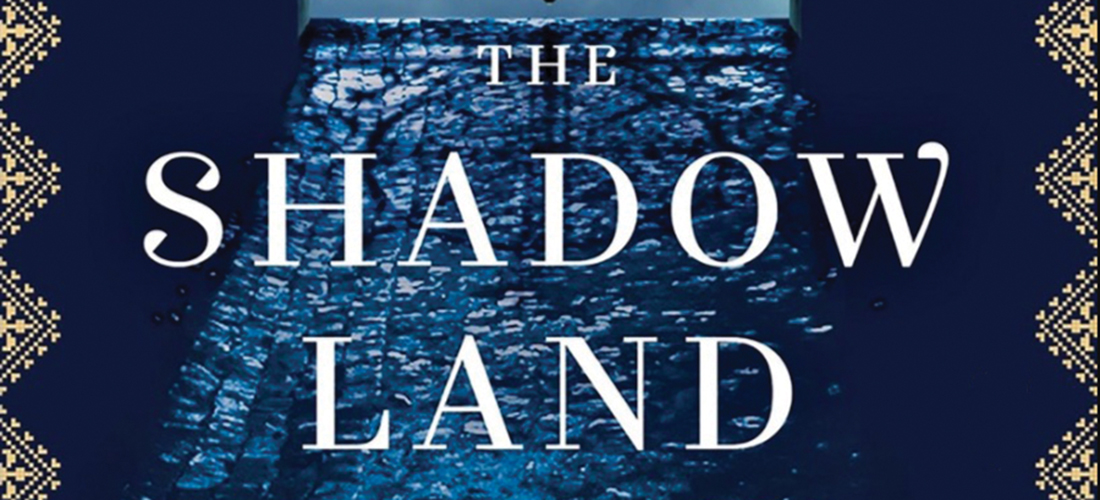
A compelling and mysterious journey
By D.G. Martin
Asheville author Elizabeth Kostova will always be remembered for her 2005 novel,
The Historian, that became the fastest-selling hardback debut novel in U.S. history and the first ever to become No. 1 on The New York Times best-seller list in its first week on sale. Her achievement was especially noteworthy because her book was literary fiction, a genre that does not often produce massive sales results.
The plot of The Historian followed a search by scholars for the origins of Vlad the Impaler, better known as Count Dracula. After research in libraries and archives in Amsterdam and Istanbul, the book’s main characters travel throughout Eastern Europe in search of Dracula’s tomb. When they find it in a Bulgarian monastery, it’s empty. Is Dracula still alive? Will they find him? Are there other vampires? On these questions, Kostova built her compelling and successful mystery.
Kostova’s second book, The Swan Thieves, was set in the world of art and made the Times bestseller list for 20 weeks in 2010.
In her third and most-recent book, The Shadow Land, she takes her readers back to Bulgaria, but this time there are no vampires. The villains are modern and very realistic.
Its main character is a young North Carolina mountain woman, Alexandra Boyd. On her first day in the country she meets a small Bulgarian family group — an older woman and two men, one in a wheelchair and the other a tall man of particular note.
Showing off her lyrical prowess, Kostova writes, “She saw that the tall man was dressed in a black vest and an immaculate white shirt, too warm and formal for the day. His trousers were also too shiny, his black shoes too highly polished. His thick dark hair, with its sheen of silver, was brushed firmly back from his forehead. A strong profile. Up close he looked younger than she’d first thought him. He was frowning, his face flushed, glance sharp. It was hard for her to tell whether he was nearer to thirty-eight or fifty-five. She realized through her fatigue that he might be one of the handsomest men she’d ever observed, broad-shouldered and dignified under his somehow out-of-date clothes, his nose long and elegant, the cheekbones flowing up toward narrow bright eyes when he turned slightly in her direction. Fine grooves radiated from the edges of his mouth, as if he had a different face that he reserved for smiling. She saw that he was too old for her after all. His hand hung at his side, only a few feet from one of hers. She felt an actual twinge of desire, and took a step away.”
He tells her his group is on its way to a beautiful monastery and suggests she consider visiting it, too. After they leave, notwithstanding Alexandra’s obvious fascination with him, it will be several hundred pages before she sees the man again, and we understand why he was described so completely. When his group departs in a taxi, Alexandra discovers she has a satchel that belongs to the Bulgarians.
A young taxi driver called Bobby befriends her as she seeks to find the satchel’s owners. In it is a wooden urn, containing ashes and inscribed with the name Stoyan Lazarov. She and Bobby report the incident to the local police, who seem suspiciously interested, but who don’t take possession of the urn. Instead, they give Alexandra an address where Lazarov lived.
Bobby suggests they rush to the monastery and return the urn to the Bulgarians, but when they get there the group is gone. Ready to continue their search, they find themselves locked in a room. Alexandra thinks, “nothing in her previous experience had prepared her for the feeling of being suddenly locked in a monastic room with a stranger five thousand miles from the Blue Ridge Mountains, holding an urn containing the ashes of another stranger. In addition to being tired and afraid, she was suddenly a thief, a vagrant and a prisoner.”
Though Alexandra and Bobby escape from the monastery, they cannot escape a growing awareness that they are being followed and their possession of the urn has put them in danger. The next day they go to the address the police provided. The house is empty, but photos and papers inside confirm the owners of the urn had, indeed, lived there. A neighbor sends them to another address in a different part of Bulgaria but, before going, they adopt a stray dog that would come to play a major role in one of the concluding scenes.
Kostova introduces other people, including an older, wealthy businessman-turned-politician named Kurilkov, known as “The Bear” who, running on a promise of “non-corruption,” is seeking to win the nation’s next election. There are growing and inexplicable dangers: vandalized cars, threats, murder and kidnapping. The urn’s secret and its dangerous value become the spine on which Kostova builds the book’s surprising and violent resolution.
On that same spine she attaches another story, that of the man whose ashes are in the urn. Stoyan Lazarov, a talented violinist, lover of Vivaldi, devoted husband and father, ran afoul of Bulgaria’s brutal Communist dictatorship following World War II. He was confined for many years in a torturous labor camp where work conditions and weather almost killed him, destroying his health and his prospects for a fulfilling musical career.
At the work camp, Lazarov met two men, one a friend and fellow inmate, and the other a guard who becomes a heated enemy. Both characters play a major part in the book’s dramatic conclusion. Kostova confesses that The Shadow Land is “very much a book about political repression — and suppression — and I’m glad to be bringing it out at this exact political moment.”
Her unforgiving description of the oppression Lazarov suffered is based on factual events. It is a disturbing reminder of the horrors of the Soviet methods of dealing with any failure to toe the Communist line.
Why has Kostova set another book in Bulgaria? Explaining her fascination, she writes about her first visit to “this mysterious country, hidden for so long behind the Iron Curtain,” and that she felt, “I had somehow come home.”
Kostova’s poetic portrayal of Bulgaria’s cities and villages, landscapes and people will make readers want to see for themselves the place she loves and describes so well. Another beloved North Carolina mountain author, Ron Rash, affirms the book’s importance. “In this brilliant work, what appears at first a minor mystery quickly becomes emblematic of a whole country’s hidden history. Lyrical and compelling, The Shadow Land proves a profound meditation on how evil is inflicted, endured, and through courage and compassion, defeated. Elizabeth Kostova’s third novel clearly establishes her as one of America’s finest writers.” PS
D.G. Martin hosts North Carolina Bookwatch, which airs Sundays at noon and Thursdays at 5 p.m. on UNC-TV.





